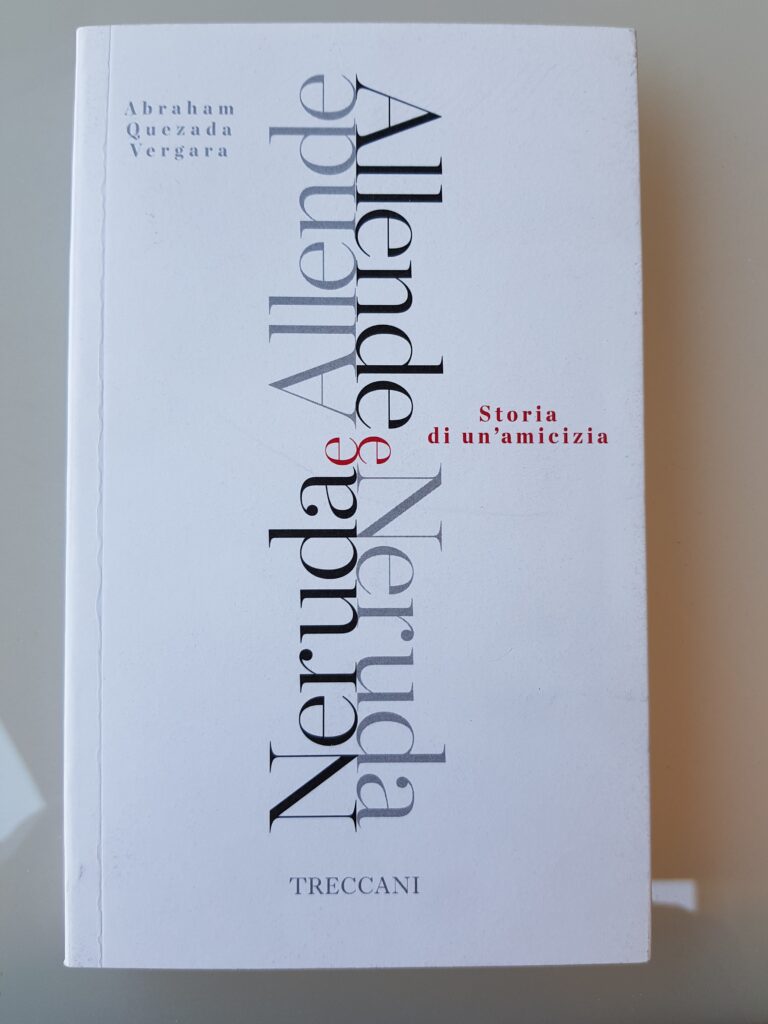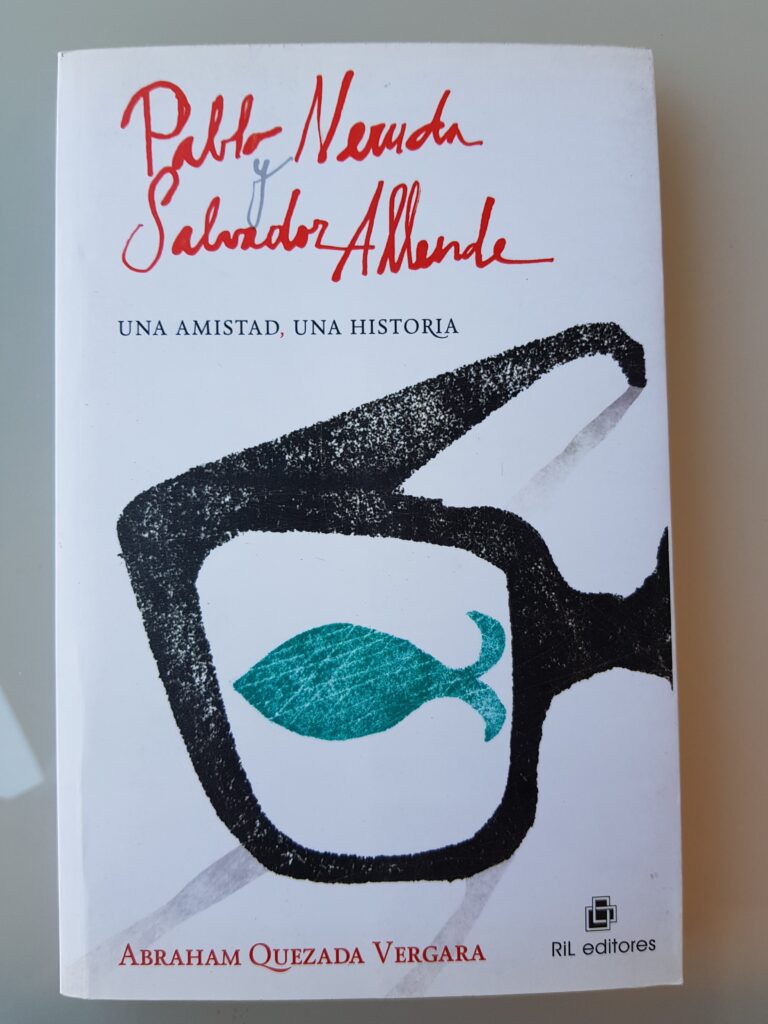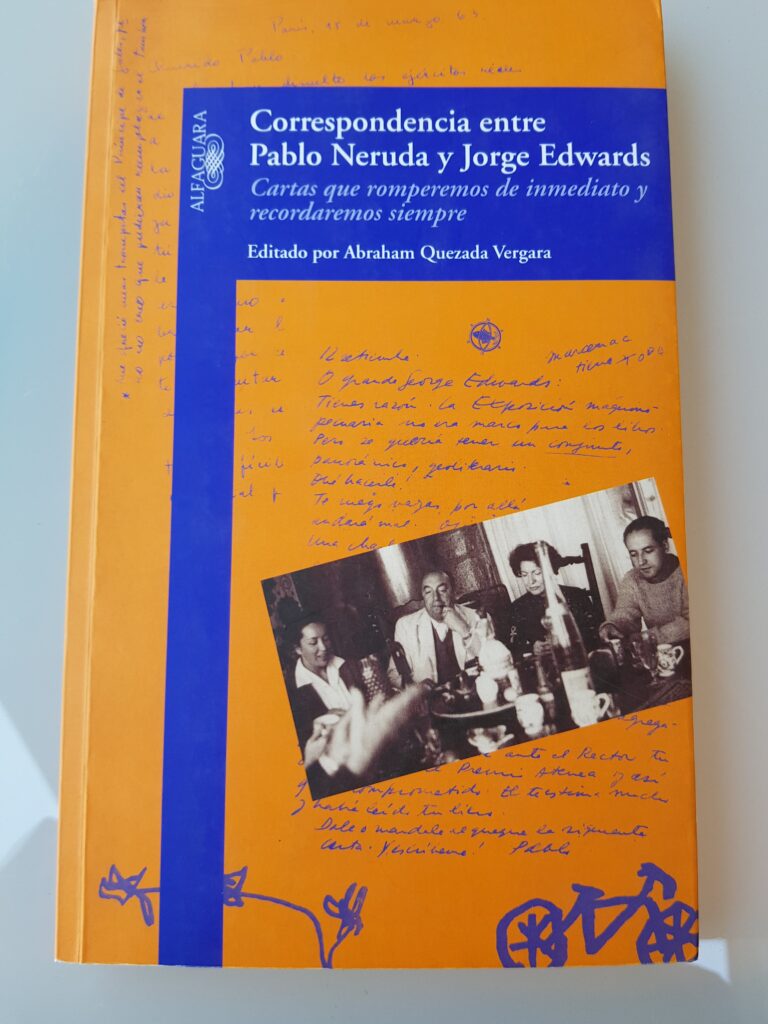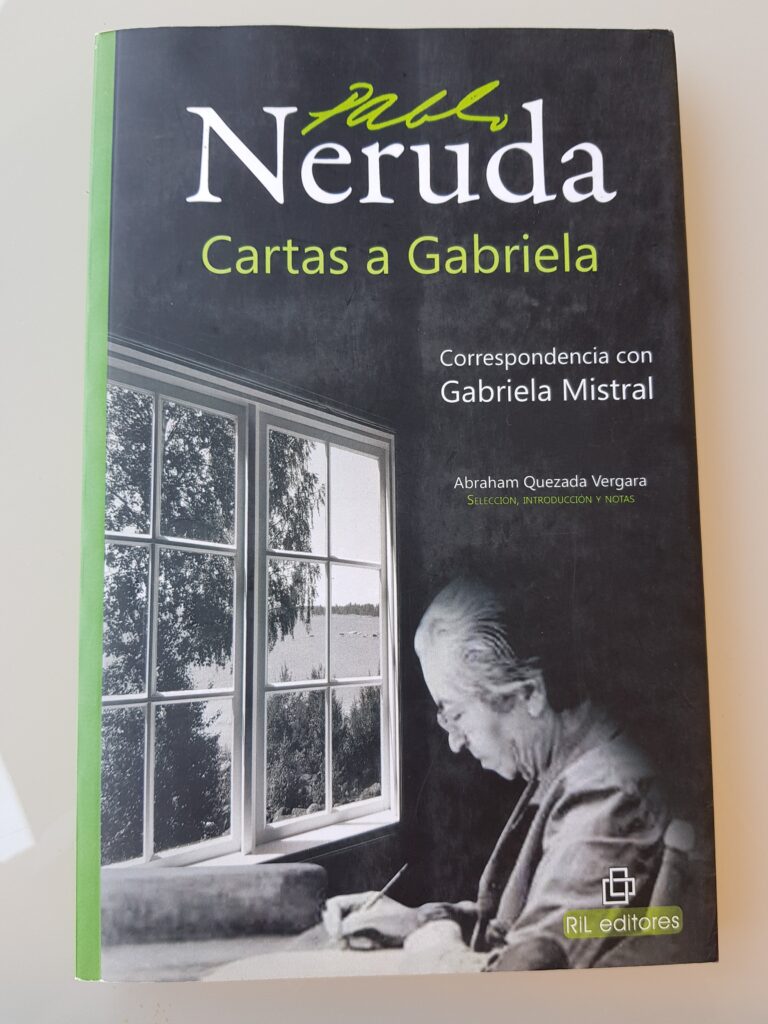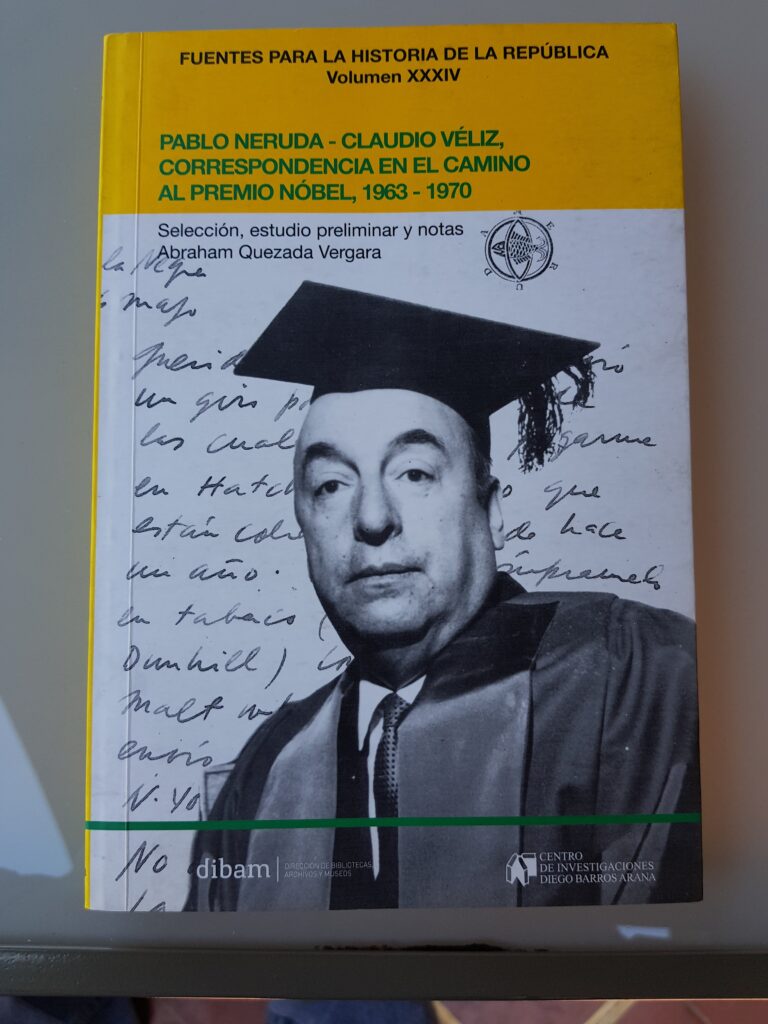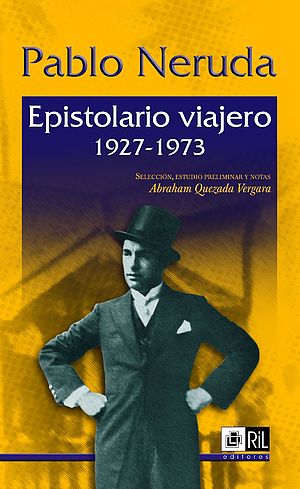
Writer and diplomat (Antofagasta, 1961). Professor of History and Geography graduated in Diplomacy. Master in International Relations and Doctor in American Studies. Researcher specialized in the biographical dimension of Pablo Neruda with important articles and books published both in national and foreign media. One of them, Allende – Neruda, a friendship, a story, with several editions in Spanish and translated into Italian by Treccani, one of the most prestigious publishers in Italy. A Chinese edition is also in preparation. A British publication has considered it as The world’s leading authority on the letters of Pablo Neruda (Cantalao N ° 1, London, Septembre, 2013).
Video transcription Abraham Quezada
Good afternoon, my friends. From the viceroyalty capital, from Lima, from Peru, I would like to extend an affectionate greeting to the Society of Chilean Bibliophiles and the Tuscan Bibliographic Society of Italy, who have organized this magnificent exhibition, the first Chilean-Italian virtual exhibition “Pablo Neruda: 50 years Nobel Prize in Literature 1971-2021 “. And in that sense, I take the opportunity to greet and also thank the institutions that have contributed to this: the General Historical Archive of the Ministry of Foreign Affairs of Chile stands out, the place where I work, and in Italy, the Library from the Ignazio Cerio Caprense Center, a place that I visited a few years ago.
Undoubtedly, this exhibition is a relevant, extraordinary and, I would say, even endearing exhibition of Neruda, because it shows us the bibliophile Neruda, one of his great passions. Neruda and his collections in Chile and, finally, Neruda in Italy. These three spaces are spaces much loved by the poet and that he developed to the full.
In his role as a bibliophile, for example, I just want to tell you two anecdotes that I had the privilege of bringing to light in some of my published works. One of them is the intense correspondence that the poet carries out with the Chilean academic Claudio Veliz so he can get for him in London an old and very valuable book entitled Travels whose author is Amasa Delano, where in August of 1963 he tells him that he is willing to pay “whatever they ask of him” and in November of that same year, that is to say, a few months later, he adds: “I burn with the desire to see and feel that book.” This was an acquisition that ultimately came to fruition and the poet received the book. When he received it, he held a reception in Isla Negra with all his friends and he was immensely happy.
Another similar anecdote is his desperate and insistent attempts, through his Peruvian friends, to acquire an original copy of Flora Tristán’s book, Peregrinaciones de una Paria, that book from 1838, in its original edition, in French. There were other editions in Chile. Even Ercilla Press, in the 1940s, had published one edition and there were another two more published that the poet could perfectly read. But no, he wanted the original French edition, and why did he want it so much? Because apart from the taste of the old book, of smelling, touching, feeling, as he says in one of his letters, Flora Tristán recounted her passage through Valparaíso and the lies and anecdotes that were circulating in our historic port at that time. Therefore, the poet wanted it in its original edition.
Therefore, this documentary contribution that you are making, with so much care, with so much love, comes, I believe, to justly celebrate Neruda’s intellectual effort and his love for books, while giving an account of his intense poetic world where there is still much to discover.
Luckily for us researchers and scholars, the Neruda`s universe is an expanding universe and the contribution that the Society of Chilean Bibliophiles is making of exposing it very professionally and sharing it, which is the ultimate goal that all people and institutions should have, who are dedicated to it, it is a truly remarkable effort.
If the poet were alive, without a doubt, he would be happy with this initiative, hopefully it will have a second, a third, a fourth and successive versions from now on.
To finish, just a reflection on Neruda and the Nobel Prize.
You well know that Neruda’s Nobel Prize was the second Nobel Prize for Chile and the third for Latin America, after Mistral’s in 1945 and Miguel Ángel Asturias’s in 1967. But Neruda had been a candidate for this recognition since late from the 40s.
In 1964, the poet was deeply moved when he learned of the resignation of the prize that Jean Paul Sartre had made. In the letter that this French philosopher sends to Stockholm, among other arguments, he says “I am not worthy of winning this award until it is given to poets like Neruda.”
Finally, the poet got it. And why did you get it? He got it, without a doubt, because of his talent and his career. But he also got it because of his persistence, because he was tenacious, and he believed and was convinced that he deserved it. So it is with these types of samples, I believe that they account for such a rich expanding universe, I repeat, that Neruda, luckily for all of us, continues to offer us these joys.
Thank you very much for the work done, I send you a warm greeting from Lima. Thank you.
